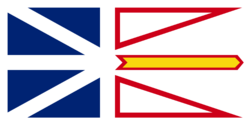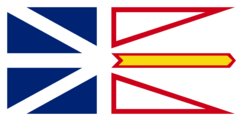Nova:Avalonese
redirects from Avalonsieu and የአቫሎን ቋን
Avalonese, or Avalonsieu (/avəlɒˈnsɪəw/ 🔊 Audio) is a West Germanic language used by the early avalonese settlers, today it takes much influence from the Romance languages, and government officials in Avalon are required to learn it in order to govern, and learning it is a very important skill in the nation.
"Piou Tic!" - A traditional greeting in Avalonese, the direct meaning would be 'Pee (for) You!"
There exists a translator for English-speakers to use Avalonese, it is called the English to Standard Avalonese Translator.
Alphabet
Summary
The Modern Standardized Avalonese Alphabet consists of 22 letters, 5 of which are vowels and 17 of which are consonants. All Avalonese citizens know at least a portion of the alphabet even if they do not know Avalonese. It is ingrained in their culture.
the Letters
| Labial | Dental | Alveolar | Post-alveolar | Palatal | Velar | Glottal | |
|---|---|---|---|---|---|---|---|
| Nasal | m | n | ŋ | ||||
| Stop | p b | t d | k g | ||||
| Affricate | tʃ dʒ | ||||||
| Fricative | f v | s z | ʃ ʒ | ||||
| Aproximate | l | h | |||||
| Trill | r | j | w |
These will go in order from beginning to end, and will include the letter, the english pronunciation, and the Avalonese pronunciation.
A, "A". Pronounced as the A in 'cat', or the A in 'want'
B, "Be" Pronounced as the B in 'boat'
C, "Ce" Pronounced as the Sh in 'should'
D, "De" Pronounced as the D in 'date'
E, "E" Pronounced as the E in 'bet'
F, "Ef" Pronounced as the F in 'fray'
G, "Ge" Pronounced as the G in 'game'
H, "He" Pronounced as the H in 'hate'
i, " i " Pronounced as the I in 'hit', or the EE in 'three', or the Y in 'yes'
K, "Ke" Pronounced as the K in 'kite'
L, "El" Pronounced as the L in 'light'
M, "Em" Pronounced as the M in 'minute'
N, "En" Pronounced as the N in 'night'
O, "O" Pronounced as the U in 'but', or the O in 'hone'
P, "pe" Pronounced as the P in 'pee'
R, "Er" Pronounced as the R in 'butter'
S, "Es" Pronounced as the S in 'so'
T, "Te" Pronounced as the T in 'tie'
U, "U" Pronounced as the OO in 'book', or the U in 'chute'
V, "Ve" Pronounced as the V in 'vent'
X, "Xe" Pronounced as the SI in 'fusion', or the ZH in 'zhou'
Z, "Ze" Pronounced as the Z in 'zone'
the Diphthongs
It is also to note that Avalonese also has diphthongs, here they are.
Ai, Pronounced as the I in 'kite'
Ei, Pronounced as the EY in 'hey'
Oi, Pronounced as the OY in 'boy'
Ui, Pronounced as the UOY in 'buoy', or the WE in 'we'
Au, Pronounced as the OU in 'out'
Eu, Pronounced as the YW in 'wayward', or when babies try to make the ER sound in builder
Ou, Pronounced as the OW in 'window', but with more emphasis on the W at the end
Tc, Pronounced as the CH in 'cheese'
Dx, Pronounced as the J in 'just'
Grammar
Avalonese has 3 grammatical genders: Masculine, Feminine, and Neuter.
Masculine singular nouns end in -OU, Feminine singular nouns in -AU, and Neuter singular nouns in -EU
And Masculine plural nouns end in -OUN, Feminine plural nouns in -AUN, and Neuter plural nouns in -EUN
Determiners end in the near-same ending trend as the nouns, such as The (Lo/La/Le/Lon/Lan/Len), or That/Those (Lou/Lau/Leu/Loun/Laun/Leun)
Adjectives end in -I, Adverbs end in -O,
Verbs merge with the Pronoun and have 6 main tenses;
"i" (I go/igraus) is marked by -AU-
"you" (you eat/kouias) is marked by -A-
"he" (he sleeps/dourvois) is marked by -OI-
"she" (she dreamed/soungaif) is marked by -AI-
'it" (it happens/hoikazeis) is marked by -EI-
"they" (they will do/furmouc) is marked by -OU-
"we" (we watch/ueirceus) is marked by -EU-
"y'all" (y'all see/vixuans) is marked by -AN-
And any unspecified ones are marked by -R
the present tense is marked by -S,
the past tense is marked by -F,
the future tense is marked by -C,
the past preterite "done" tense is marked by -N,
the gerund or "-ing" tense is marked by -ST,
The form of verbs called the infinitive; "to do", for example, would end in an -I.
If any vowels were to duplicate in the process, an M would be placed between them. If any consonants were to duplicate in the process, an I would be added between them.
History
Modern Avalonese (or just Avalonese)
Modern Avalonese is the current version of Avalonese spoken on the EarthMineCraft.NetWork server, and is often just called Avalonese for simplicity. It is very similar in the way German is in which Avalonese is spoken by political figures and idiots who learn it in school but can't use it because it's only spoken in a single continent. However, unlike German, Avalonese has a much higher appeal due to concise grammatical rules, and has been starting to increase in usage and popularity throughout north american, and on the server. However, there are sadly still bums that don't put in the effort to learn it, and prefer using english. This lead to the creation of Anglicized Avalonese, the odd donkey of Avalon.
An example of Modern Avalonese thus follows:
Avalonese: "Esti, ou nao esti ei? leu es le denmacieu. Tcao esteis pao sfoblei en le mendeu esti hatikeur bou lan arkaun oi zagoun dei loukui bugoi, ou pronti barmeun kau u marou dei malei dafeiroun, oi, bou hatikast, zentcar hinc"
English: "To be, or not to be? That is the question. Whether it's nobler in the mind to suffer The slings and arrows of outrageous fortune, Or to take arms against a sea of troubles, And, by opposing, end them"
Extent of Avalonese
Avalonese as a language is very centralized within Eastern Canada, it originates from the Island of Newfoundland whose inhabitants migrated from Eastern Africa for religious reasons, and its host nation with the same name of Avalon, however due to conquest of the region and for communication efficiency, many other cultures have adopted the Avalonese language either as a language secondary to the national language or cultures choosing to override their current language with Avalonese. Some have even abandoned their previous culture and define themselves now as only Avalonese.
There are 10 major different dialects in the region, each with unique attributes and differences. The dialect with the highest population would have to be the Canadian dialect. However, Avalonese is only a secondary language to their national language of Canadian, and there are more Avalonese speakers overall in the second largest being the Metropolitan Dialect in that of Eastern Newfoundland. This dialect is regarded as the default for many Avalonese speakers due to its growing film industry and also for hosting the Capital of Avalon; Dildo. Metropolitan Avalonese speakers often poke fun at the American Dialect of Avalonese; the Black Sheep of the Avalonese dialects which takes from the traditional American national language of American in its ugly use of the "ur" and "uh" sounds that Avalonese speakers in general like to call 'puiast um evou', Or, in it's feudal english translation "Pooping an Egg".
Ancient Avalonese
Ancient Avalonese is the language the Avalonese settlers used before and slightly after arriving on Newfoundland Island, nobody speaks it as a first language today but it is used in religious affairs and gatherings based on the nation's religion Pissism and many Shites have to learn it as a second language in order to read out sermons correctly, it is also one of the first requirements for becoming the Poop. Many ancient relics are engraved with Ancient Avalonese such as the Pee Pee monument.
An example of Ancient Avalonese thus follows:
Ancient Avalonese: "የእንግሊዝኛ ቋንቋ መጥፎ ነው እና ህዝቡ በጣም ሰነፍ ከመሆኑ በፊት ከአቫሎን መዝገበ ቃላት ቋንቋ መሰደድ አለበት።"
English: "English is very stinky and deserves to be exiled from the Avalonese lexicon before the commonfolk get too lazy"
Avalonese Slang
Avalonese Slang is not really a language, but instead is various terms and paraphrases used by Avalonese speakers when communicating, usually in a rural environment. There is no up-to-date list as it constantly changes, but here is a list going in no particular order.
"Puas" - Oh Poop - Avalonese way of saying "Oh Crap" or "Oh Shit"
"Oh Poop! i left my gold at home!"
!pee - A reference to a bot used on the Avalon discord where if this term were to be said the bot would make a weary expression next to a splash of pee.
"Hey, you wanna see something funny?"
"Sure"
"!pee"
":weary::pee:"
д? - an Avalonese symbol similiar to the use of & however instead of representing the word "and" it represents the word "what"
"Goats are like mushrooms, if you shoot a Duck; I'm scared of Toasters"
"д?"
Poop Dealer(s) - Avalonese slang for a player who deals in cocoa beans and other dyes, could also be referring to one of the factions of the Poop Dealer vs Penis Inspector Gang War
"so i was in Chicago N spawn the other day, weird place. They had too many Poop Dealers"
Penis Inspector(s) - Avalonese slang for a new player who has never seen a Pee Pee before and feels to need to look at it, or even lick it, could also be referring to one of the factions of the Poop Dealer vs Penis Inspector Gang War
"On our last crusade, we were about to head more north when this Penis Inspector came to one of our Pee Pees and started licking it. I love 'em"
Crusade - refers to the action of a group of players placing several Pee Pees down while going a direction, Also called a Pissism Crusade
"hey do you know when the next crusade is?"
Casual Sex - terminology used to describe how a crusade is going or how a crusade went. Casual Sex means that during the crusade, nobody had to engage in PvP with an attacker or innocent bystanders, or was attacked themselves.
"i'm tired of these crusades always bein' about Casual Sex nowadays"
Competitive Sex - terminology used to describe how a crusade is going or how a crusade went. Competitive Sex means that during the crusade, at least one person engaged in PvP with an attacker or innocent bystanders, or was attacked themselves.
"Enough casual Sex, time to go Competitive"
Ballgod Armour - the terminology used for Godarmour that the Avalonese and other Pissist Nations use
"yo i lost my Ballgod Armour on that on crusade we took, can i borrow yours?"
Seccellent/Sexcellent - Avalonese slang for an amazing situation
"Hey, how was the Crusade?"
"Oh it was Seccellent!"
QT(s) - refers to underaged girls and women
"Mate, this place is too weird. This person has waaaay too many QTs on his plot"
Naked(s) - refers to new players who just spawned and have no armour on
"You know, we were all Nakeds at some point of our lives"
Kush - slang for heaven or a haven, historically the birthplace of the Ball God
"Mate, if you keep looking at pornography, you won't end up in Kush!"



